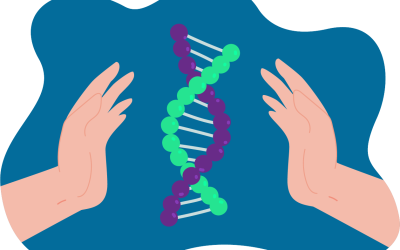Cigna Announces Rollback of Prior Authorization Requirements

Cigna has taken a significant step towards simplifying the healthcare process by eliminating prior authorization requirements for 25 medical procedure codes. This decision is in line with Cigna’s ongoing efforts to enhance patient care and reduce administrative complexities for healthcare providers.
The 25 procedure codes affected by this change cover a range of medical services, including diagnostic tests, minor surgeries, and medical imaging. By removing prior authorization for these codes, Cigna aims to streamline the process of obtaining necessary medical care, making it easier for patients to access essential services without unnecessary delays.
This decision is particularly beneficial for healthcare providers who often find themselves navigating a complex web of paperwork and administrative hurdles when seeking prior authorization. By simplifying the process, Cigna seeks to improve collaboration between providers and insurers, ultimately leading to a more efficient healthcare system.
Cigna’s move to eliminate prior authorization requirements for these 25 codes reflects a broader industry trend towards prioritizing patient-centric care and reducing the burden of administrative tasks on healthcare professionals. It sets a positive example for other insurers, encouraging them to reevaluate their authorization processes and focus on improving the overall healthcare experience for patients and providers alike.
This move may have a particularly positive impact on laboratories and their billing processes. Laboratories often perform diagnostic tests and procedures covered by these codes. With prior authorization requirements eased, labs can expect smoother interactions with insurance providers, potentially reducing billing disputes and delays in receiving payment. This change could ultimately lead to more efficient billing processes for labs, allowing them to focus on delivering critical diagnostic services promptly.
| Laboratory CPT Codes Removed from Cigna Prior-Authorization Master List | Description |
| 81173 | AR (androgen receptor) (eg, spinal and bulbar muscular atrophy, Kennedy disease, X chromosome inactivation) gene analysis; full gene sequence |
| 81176 | ASXL1 (additional sex combs like 1, transcriptional regulator) (eg, myelodysplastic syndrome, myeloproliferative neoplasms, chronic myelomonocytic leukemia), gene analysis; targeted sequence analysis (eg, exon 12) |
| 81185 | CACNA1A (calcium voltage-gated channel subunit alpha1 A) (eg, spinocerebellar ataxia) gene analysis; full gene sequence |
| 81201 | APC (adenomatous polyposis coli) (eg, familial adenomatosis polyposis [FAP], attenuated FAP) gene analysis; full gene sequence |
| 81202 | APC (adenomatous polyposis coli) (eg, familial adenomatosis polyposis [FAP], attenuated FAP) gene analysis; known familial variants81203 |
| 81203 | APC (adenomatous polyposis coli) (eg, familial adenomatosis polyposis [FAP], attenuated FAP) gene analysis; duplication/deletion variants |
| 81219 | CALR (calreticulin) (eg, myeloproliferative disorders), gene analysis, common variants in exon 9 |
| 81229 | Cytogenomic constitutional (genome-wide) microarray analysis; interrogation of genomic regions for copy number and single nucleotide polymorphism (SNP) variants for chromosomal abnormalities |
| 81232 | DPYD (dihydropyrimidine dehydrogenase) (eg, 5- fluorouracil/5-FU and capecitabine drug metabolism), gene analysis, common variant(s) (eg, *2A, *4, *5, *6) |
| 81236 | EZH2 (enhancer of zeste 2 polycomb repressive complex 2 subunit) (eg, myelodysplastic syndrome, myeloproliferative neoplasms) gene analysis, full gene |
| 81237 | EZH2 (enhancer of zeste 2 polycomb repressive complex 2 subunit) (eg, dif fuse large B-cell lymphoma) gene analysis, common variant(s) (eg, codon 646) |
| 81306 | NUDT15 (nudix hydrolase 15) (eg, drug metabolism) gene analysis, common variant(s) (eg, *2, *3, *4, *5, *6) |
| 81335 | TPMT (thiopurine S-methyltransferase) (eg, drug metabolism), gene analysis, common variants (eg, *2, *3) |
| 81427 | Genome (eg, unexplained constitutional or heritable disorder or syndrome); re-evaluation of previously obtained genome sequence (eg, updated knowledge or unrelated condition/syndrome) |
| 81523 | Oncology (breast), mRNA, next-generation sequencing gene expression profiling of 70 content genes and 31 housekeeping genes, utilizing formalin-fixed paraf finembedded tissue, algorithm reported as index related to risk to distant metastasis |
| 81539 | Oncology (high-grade prostate cancer), biochemical assay of four proteins (Total PSA, Free PSA, Intact PSA, and human kallikrein-2 [hK2]), utilizing plasma or serum, prognostic algorithm reported as a probability score |
| 81551 | Oncology (prostate), promoter methylation profiling by real-time PCR of 3 genes (GSTP1, APC, RASSF1), utilizing formalin-fixed paraf fin-embedded tissue, algorithm reported as a likelihood of prostate cancer detection on repeat biopsy |
| 81560 | Transplantation medicine (allograf t rejection, pediatric liver and small bowel), measurement of donor and thirdparty-induced CD154+T-cytotoxic memory cells, utilizing whole peripheral blood, algorithm reported as a rejection risk score |
| 81599 | Unlisted multianalyte assay with algorithmic analysis |
| 85999 | Unlisted hematology or coag procedure |
| 86486 | Skin test; unlisted antigen, each |
| 86849 | Unlisted immunology procedure |
| 88375 | Optical endomicroscopic image(s), interpretation and report, real-time or referred, each endoscopic session |
| 89240 | Unlisted miscellaneous pathology test |
| 89398 | Unlisted reprod med lab proc |
| G0428 | Collagen meniscus implant procedure for filling meniscal defects (e.g., cmi, collagen scaf fold, menaflex) |
| G0448 | Insertion or replacement of a permanent pacing cardioverter-defibrillator system with transvenous lead(s), single or dual chamber with insertion of pacing electrode, cardiac venous system, for lef t ventricular pacing |
| G0455 | Preparation with instillation of fecal microbiota by any method, including assessment of donor specimen |
| G2000 | Ultrasonic guidance for placement of radiation therapy fields |
STAY UPDATED ON NEWS & BLOGS
Ready to grow your lab?
FOLLOW US
Discover How You Can Earn More Revenue
With Laboratory Reimbursement Experts
We help your practice or laboratory identify and implement one of a kind solutions to maximize your laboratory services revenue.
Read Our Latest Posts
Genetic Lab Billing Services for OB/GYN Revenue
ON THIS PAGE The Growth of Genetic and Molecular Testing in OB/GYN PracticesThe Complex Nature of Genetic Lab Billing and Why It Requires ExpertsThe Impact of Molecular Laboratory Billing Services on OB/GYN ProfitabilityPractices That Can Boost Their OB/GYN Revenue...
Fertility Billing Services for Ancillary Lab Revenue
ON THIS PAGE Why Lab Revenue Is Often Overlooked in Fertility ClinicsObtaining New Revenue From Fertility Laboratory TestingThe Unique Challenges of Fertility Laboratory BillingReducing Cost of Testing and Recovering More PaymentsOptimize Revenue with Fertility...
Revenue Opportunities for OBGYN Profitability
ON THIS PAGE Unlocking the Full Potential of OB/GYN RevenueHow Ancillary Laboratory Services Costs Impact OB/GYN RevenueHow the Right Laboratory Reimbursement Strategy Can Boost OB/GYN ProfitabilityWhy Choosing the Right OB/GYN Lab Revenue Partner MattersTake Control...



